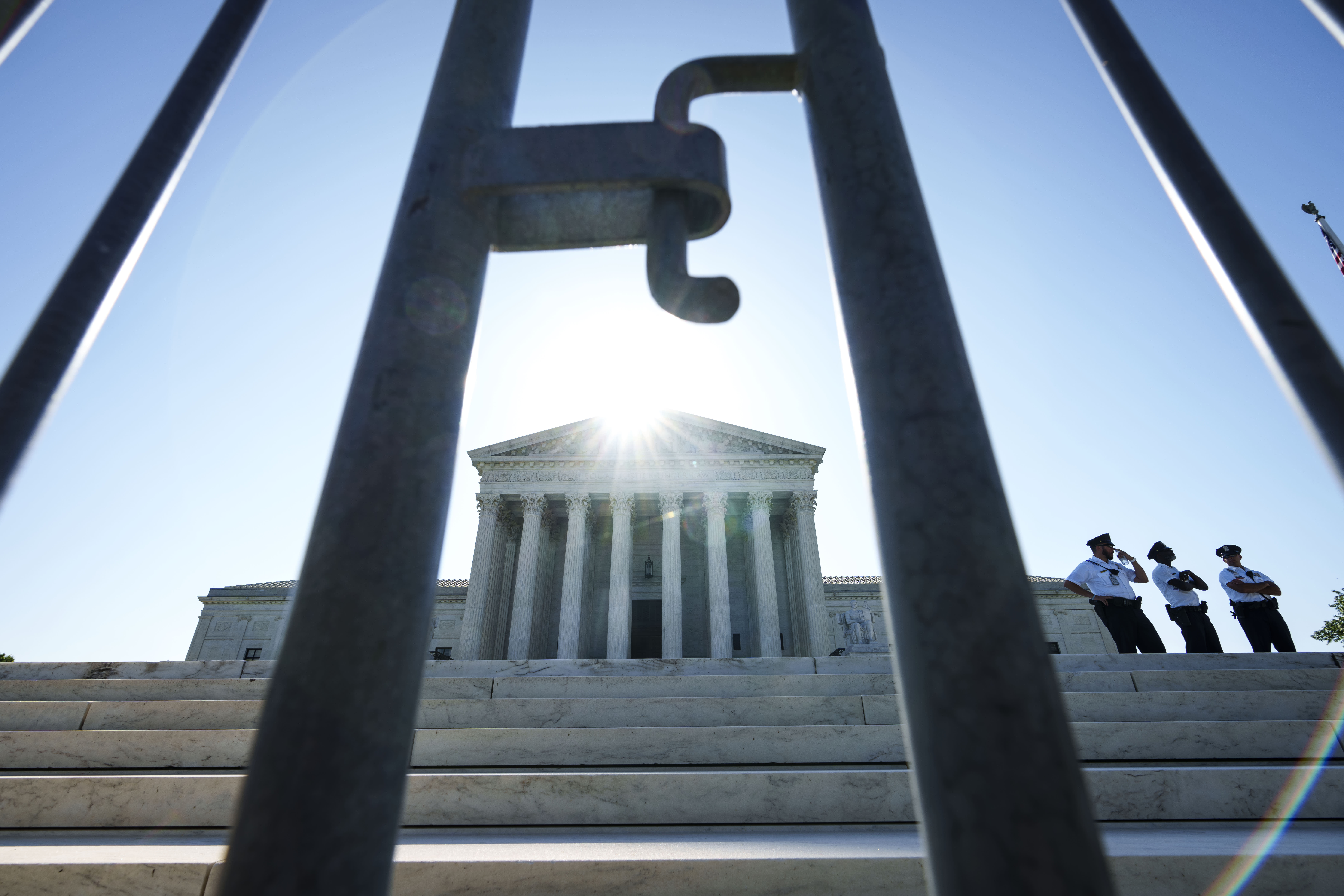
A view of the U.S. Supreme Court on June 28, 2021 in Washington, DC.
Drew Angerer | Getty Images
Supreme Court justices asked Wednesday if the U.S. would allow a Guantanamo Bay detainee to testify about his alleged torture and confinement by the CIA, a move that could sidestep a dispute over the government’s assertion of the “state secrets privilege.”
The question arose at the end of oral arguments about the government’s effort to stop two ex-CIA contractors from testifying about the treatment of that detainee, Abu Zubaydah, at an alleged “black site” in Poland.
This undated file photo provided by U.S. Central Command, shows Abu Zubaydah, date and location unknown. The Supreme Court is hearing arguments about the government’s ability to keep what it says are state secrets from a man tortured by the CIA following 9/11 and now held at the Guantanamo Bay detention center. At the center of the case being heard Wednesday is whether Abu Zubaydah can get information related to his detention.
US Central Command | AP
“Why not make the witness available?” Justice Neil Gorsuch asked Justice Department attorney Brian Fletcher. “What is the government’s objection to the witness testifying to his own treatment and not requiring any admission from the government of any kind?”
Fletcher said that that question had not been resolved because the request had not been made by Zubaydah’s lawyers, who say Zubaydah has not been allowed to speak.
Justices Sonia Sotomayor and Stephen Breyer pressed further.
“We want a clear answer,” Sotomayor said.
“I don’t understand why he’s still there after 14 years,” Breyer added.
Zubaydah was captured in Pakistan in 2002 and has been imprisoned ever since, being held by the CIA in detention facilities overseas without charges.
The U.S. believed him to be a member of al-Qaeda, the terrorist group behind the Sept. 11, 2001, attacks. In a petition to the Supreme Court, the government described Zubaydah as an “associate and longtime terrorist ally of Osama bin Laden” — a claim Zubaydah’s lawyers called “categorically false.”
Zubaydah in 2017 asked a U.S. district court to authorize subpoenas to question ex-CIA contractors James Mitchell and John Jessen about a site in Poland where Zubaydah alleges he was held and tortured. Their testimony would be part of an investigation being conducted by Polish authorities.
The government, asserting the state secrets privilege, moved to quash those subpoenas in their entirety. The district court granted the government’s request, but an appeals court disagreed, finding that not all of the requested information was a state secret.
The government appealed that ruling to the Supreme Court, arguing that the lower court’s decision “is seriously flawed and poses significant risks to the national security.”
In a brief to the Supreme Court, Zubaydah’s lawyers said the U.S. has forbidden him from offering his own testimony in the Polish investigation.
The United States flag flies inside of Joint Task Force Guantanamo Camp VI at the U.S. naval base in Guantanamo Bay, Cuba, March 22, 2016.
Lucas Jackson | Reuters
Fletcher told the court Wednesday that Zubaydah is not being held “incommunicado” but is subject to the same restrictions as other Guantanamo detainees.
Zubaydah’s lawyers allege the CIA subjected him to a “relentless regime” of torture spanning several years and multiple countries. Their petition to the high court describes him being waterboarded 83 times in one month, suspended naked from hooks for hours at a time and being crammed into a small box “that would neatly fit under a chair,” among other methods.
The government acknowledges that Zubaydah’s treatment by the CIA “included the use of enhanced interrogation techniques.”
The Supreme Court is set to hear arguments next month in another case involving questions about the state secrets privilege. That case, FBI v. Fazaga, involves claims that the FBI had an informant infiltrate a California mosque to follow targets on the basis of their religion. Oral arguments will take place Nov. 8.




